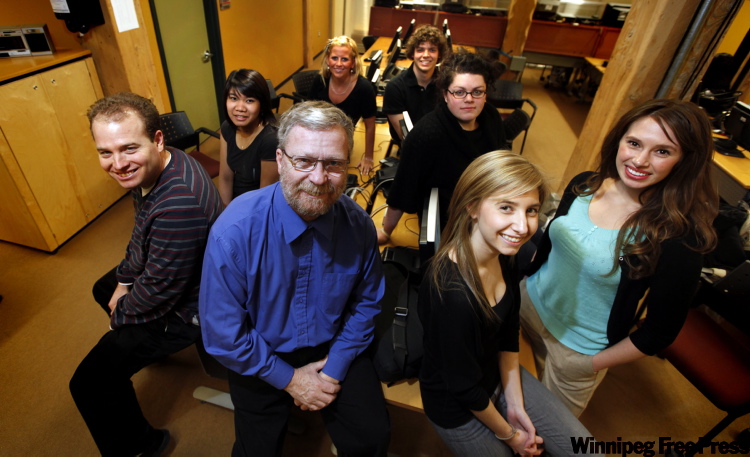Students exercise their ‘Right to Know’ with FIPPA requests
Advertisement
Read this article for free:
or
Already have an account? Log in here »
To continue reading, please subscribe:
Monthly Digital Subscription
$0 for the first 4 weeks*
- Enjoy unlimited reading on winnipegfreepress.com
- Read the E-Edition, our digital replica newspaper
- Access News Break, our award-winning app
- Play interactive puzzles
*No charge for 4 weeks then price increases to the regular rate of $19.00 plus GST every four weeks. Offer available to new and qualified returning subscribers only. Cancel any time.
Monthly Digital Subscription
$4.75/week*
- Enjoy unlimited reading on winnipegfreepress.com
- Read the E-Edition, our digital replica newspaper
- Access News Break, our award-winning app
- Play interactive puzzles
*Billed as $19 plus GST every four weeks. Cancel any time.
To continue reading, please subscribe:
Add Free Press access to your Brandon Sun subscription for only an additional
$1 for the first 4 weeks*
*Your next subscription payment will increase by $1.00 and you will be charged $16.99 plus GST for four weeks. After four weeks, your payment will increase to $23.99 plus GST every four weeks.
Read unlimited articles for free today:
or
Already have an account? Log in here »
Hey there, time traveller!
This article was published 09/01/2010 (5790 days ago), so information in it may no longer be current.
WINNIPEG – Imagine getting your hands on information that “doesn’t exist” — and at a bargain rate, too.
That’s what happened when we entered the great abyss of the Freedom of Information and Protection of Privacy Act (FIPPA).
Last fall, as part of national Right to Know Week, the students in our second-year Creative Communications class at Red River College were tasked with using the province’s access to information legislation to tease out secret government information and turn it into a story.

Classmates asked for everything from the number of times police had fired their weapons in the last several years to how long callers to the city’s 311 line had been stuck on hold. We ran up against many of the challenges regular people deal with when asking for information from government.
Our initial request was, as far as we were concerned, simple: “Please provide the age of the offender and the date of the offence for every impaired driving conviction in Manitoba from December 31, 2002 to January 1, 2009.”
The response? Request denied because no such records exist.
“Retrieving that specific information from the CCAIN system would require programming changes, considerable time and staff resources and we are therefore unable to undertake it,” wrote Mary Loepp, the FIPPA co-ordinator at Manitoba Justice.
It would cost “thousands of dollars” to gather the necessary information to fulfill the request, she said.
What did this mean? Did the information exist, but was too costly to obtain? Was it impossible to gather?
Everyone we talked to seemed to pussy-foot their way around the answer. And, unless we could help the Manitoba government create a new software program that would enable them to decipher the requested information, we were out of luck, they said.
We weren’t alone. The Winnipeg Police got so fed up with requests from students that they refused to answer any more questions.
But other agencies were fast and helpful. City hall released a list of 311 wait times with relatively little fuss and allowed our classmates access to the call centre. And, when students requested some data from the province’s employment standards branch, a huge list of all the complaints made by restaurant and bar staff arrived. It took a few phone calls, but the students got more year worth of data than they originally expected.
Spurred by discussions of our classmates’ progress, we refined our request. We asked for alcohol-related convictions broken down by age group for a full calendar year, any year in the last five.
The incessant search for that data began at Manitoba Justice and then went to Manitoba Public Insurance.
Next we checked with the Winnipeg Police Service and went to the Manitoba Archives. Still looking for answers, we took a crack at the RCMP and the Manitoba Law Courts.
It seemed like a fruitless venture until an unlikely hero emerged: Leesa Girouard at the Manitoba Legislative Library, which is tucked at the back of the legislative building on Broadway.
She gave us a copy of the 2007 MPI Traffic Collisions Statistics Report, which gave us every alcohol-related Criminal Code conviction by age group from 1989 to 2006.
We can only assume that’s the information that a parade of Manitoba government agencies told us they didn’t have.
Instead of the original quote of “thousands of dollars,” we ended up doling out 80 cents: 50 cents for parking and 30 cents for photocopying.

